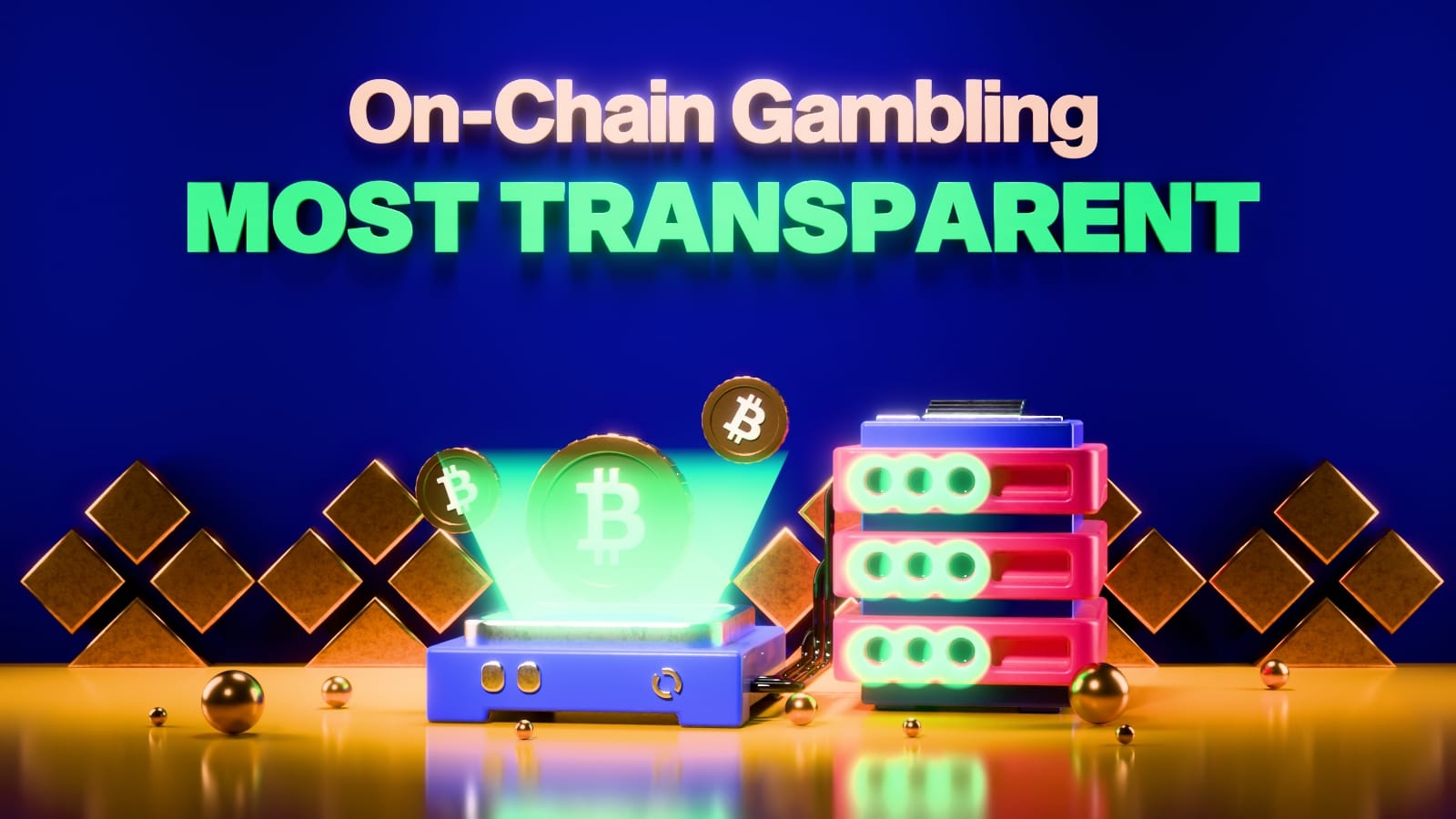Why On-Chain Gambling Is the Most Transparent Way to Play

Online gambling has long faced scrutiny over fairness, trust, and transparency. From rigged odds to shady operators, players often have little visibility into what happens behind the scenes. But that’s changing—thanks to on-chain gambling.
Built on blockchain technology, on-chain gambling provides an unprecedented level of transparency, security, and fairness. It shifts power from centralized casinos to the players themselves. In this article, we’ll explore what makes on-chain gambling the most transparent way to play, and why it’s at the core of the Web3 revolution.
What is On-Chain Gambling?
On-chain gambling refers to gambling platforms where all transactions, game mechanics, and outcomes are recorded and executed directly on the blockchain via smart contracts. Unlike traditional or hybrid crypto casinos, on-chain platforms don’t rely on any centralized backend.
Key Features
- Smart Contracts: Govern the rules of the game and automatically execute outcomes.
- Public Ledger: All game activity is visible on the blockchain.
- Self-Custody: Players interact via non-custodial wallets.
- Provably Fair: Outcomes can be verified using cryptographic algorithms.
Transparency Through Technology
Immutable Transactions
Every bet, win, and payout is permanently recorded on the blockchain. This immutability means no operator can tamper with results or balances.
Open-Source Code
Many on-chain casinos publish their smart contracts for public audit. This allows players and developers to verify the fairness and security of the code.
Verifiable RNG (Random Number Generation)
On-chain casinos often use cryptographic RNG algorithms that can be verified by anyone. Some use oracles (like Chainlink VRF) to ensure true randomness.
Real-Time Tracking
You can track every spin, dice roll, or card dealt—live—using blockchain explorers like Etherscan or BscScan. Transparency isn’t just promised; it’s proven.
Why Traditional Online Casinos Fall Short
Opaque Game Mechanics
Most online casinos operate behind closed doors. Players have no access to the code, algorithms, or server-side processes determining outcomes.
Trust Issues
Trust is placed in the platform, not the process. If an operator decides to delay withdrawals or change terms, players have little recourse.
Centralized Risk
All player funds are held by the operator, creating a single point of failure—and temptation.
The On-Chain Advantage
Trustless Play
On-chain platforms require no trust in third parties. Smart contracts execute exactly as coded, with no room for human interference.
Player Empowerment
Players keep custody of their assets. They engage directly with smart contracts, reducing reliance on intermediaries.
Community Governance
Many on-chain gambling platforms are governed by DAOs (Decentralized Autonomous Organizations), giving users a voice in the platform’s future.
Interoperability and Composability
Games can be integrated with DeFi protocols, NFT economies, and cross-chain ecosystems—creating richer, interconnected gaming experiences.
Real-World Example: Ridotto
Ridotto is a pioneer in fully on-chain gambling. Here's how it sets the standard for transparency:
- Fully On-Chain Games: All actions, from bets to outcomes, are executed on-chain.
- Open Governance: Users can propose and vote on platform updates.
- Public Smart Contracts: Code is available for community inspection.
- Token-Based Incentives: Players are rewarded with RDT tokens for participation, staking, and governance.
- Cross-Chain Support: Operates across multiple blockchains for accessibility and speed.
Challenges and Considerations
Gas Fees
Transactions on blockchains like Ethereum can be costly. Layer 2 solutions and alternative chains help mitigate this.
Speed and Scalability
On-chain execution can be slower than centralized platforms. Game design needs to optimize for blockchain environments.
User Education
Understanding wallets, smart contracts, and gas can be daunting. Onboarding tools and tutorials are essential for new users.
How to Get Started
- Choose a Wallet: Use MetaMask, Trust Wallet, or another Web3 wallet.
- Acquire Crypto: Buy ETH, BNB, or other supported tokens via an exchange.
- Select an On-Chain Casino: Prefer platforms with transparent code and verified smart contracts.
- Connect and Play: Interact directly with the casino using your wallet.
The Future of Gambling is Transparent
As more players seek fairness and control, on-chain gambling is poised for explosive growth. It’s not just a new way to play—it’s a better one.
With innovations like verifiable randomness, tokenized rewards, and player governance, on-chain casinos like Ridotto are leading the charge toward a transparent, equitable gaming future.
Conclusion
In an industry often plagued by mistrust, on-chain gambling is a beacon of transparency. It empowers players, reduces reliance on centralized authorities, and leverages the strengths of blockchain to deliver a truly fair gaming experience.
Whether you're a seasoned crypto user or new to Web3, on-chain gambling represents the next step in the evolution of online betting. And as platforms like Ridotto continue to refine the model, the benefits will only become clearer.
Stay connected with Ridotto’s blog for more insights on transparent gaming, blockchain innovation, and the future of decentralized entertainment.

